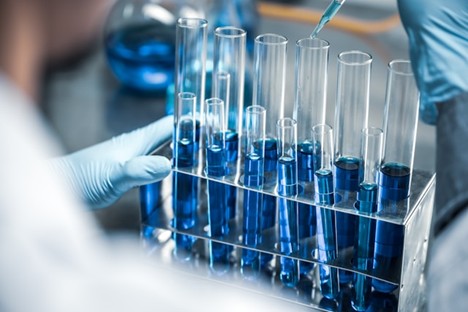In modern biotechnology and pharmaceutical studies, few tools are as versatile and impactful as research peptides. These short chains of amino acids serve not only as essential research tools but also as foundational components for novel therapeutic strategies, driving innovation at the intersection of science and medicine. Their use in supporting antibody generation has established them as indispensable assets in both basic research and applied drug discovery.
As the demand for precision therapies, targeted diagnostics, and next-generation vaccines continues to rise, the ability to design, produce, and implement peptides is expanding rapidly. Exploring their role within research pipelines, especially in conjunction with antibody development, highlights their growing significance across the life sciences.
What Are Synthetic Peptides?
Peptides are short sequences of amino acids linked by peptide bonds, essentially small versions of proteins. Unlike proteins, which can consist of hundreds or thousands of amino acids, peptides typically range from just a few to about 50 amino acids in length. Their manageable size makes them ideal for both design and synthesis, allowing scientists to tailor them for specific purposes in the lab.
Synthetic peptides are manufactured through controlled laboratory methods, often using solid-phase peptide synthesis (SPPS). This allows researchers to precisely dictate the amino acid sequence, incorporate modifications, and generate peptides that mimic naturally occurring protein regions or entirely novel structures.
Antibody Development
One of the most important applications of synthetic peptides is in the development of antibodies. Antibodies are central to diagnostics, therapeutics, and basic biological research, and peptides serve as efficient antigens to generate them.
Supporting Polyclonal Antibody Production
Polyclonal antibodies are produced by immunizing animals, commonly rabbits, goats, or sheep, with an antigen. The immune system responds by generating a diverse array of antibodies that recognize multiple epitopes of that antigen. Synthetic peptides play a key role in this process because they can be designed to represent specific regions of a protein of interest.
By using carefully selected synthetic peptides as immunogens, researchers can:
Target Specific Protein Regions: They can mimic unique or conserved sequences within a protein, ensuring antibodies are directed to precise locations.
Avoid Unwanted Cross-Reactivity: By excluding highly conserved regions shared across protein families, peptide-based antigens help minimize off-target recognition.
Enable Antibody Production Without Full Proteins: Sometimes, the complete protein of interest is difficult or impossible to isolate. In such cases, synthetic peptides provide a practical alternative for antibody generation.
This approach is especially valuable in producing polyclonal antibodies for use in techniques like Western blotting, immunohistochemistry, and ELISA, where specificity and reliability are critical.
Research Pipelines
Beyond antibody generation, synthetic peptides contribute to nearly every stage of drug discovery and biotechnology research. Their versatility comes from their ability to mimic natural biological interactions while being easily customizable.
Molecular Probes in Basic Research
Synthetic peptides can be used as molecular probes to study protein-protein interactions, signaling pathways, and receptor activity. For example, by mimicking the binding region of a protein, peptides can act as competitive inhibitors or activators in cell-based assays.
Epitope Mapping and Validation
Peptides enable detailed mapping of antibody binding sites. By synthesizing overlapping sequences of a protein, researchers can determine exactly which region an antibody recognizes. This is critical for validating polyclonal antibodies and ensuring reproducibility in experiments.
Preclinical Models for Vaccine Development
In vaccine research, peptides can represent antigenic determinants of pathogens. Their ability to stimulate targeted immune responses makes them promising candidates for subunit vaccines, especially when combined with suitable carriers or adjuvants.
Therapeutic Lead Compounds
Peptide-based therapeutics are an expanding field, with synthetic peptides serving as drug candidates in areas ranging from cancer immunotherapy to metabolic disorders. Their ability to mimic natural ligands, hormones, or inhibitors gives them unique therapeutic potential.
Advantages in Biotech Applications
The growing reliance on synthetic peptides stems from several key advantages they offer researchers and developers:
Customizable Design: Researchers can dictate amino acid sequences to ensure precision targeting.
Batch-to-Batch Consistency: Laboratory synthesis reduces variability compared to isolating proteins from natural sources.
Scalability: Peptides can be produced in small batches for research or scaled up for industrial applications.
Versatility: They can serve as antigens, probes, therapeutic candidates, or molecular tools.
Cost-Effectiveness: Compared to producing full-length proteins, peptide synthesis is often faster and more economical.
These benefits explain why peptides have become a staple resource in labs worldwide.
The Relationship Between Peptides and Polyclonal Antibodies
When considering antibody applications, synthetic peptides and polyclonal antibodies form a synergistic relationship. Peptides provide the means to create highly targeted antibodies, while polyclonal antibodies, in turn, enable sensitive and broad detection of protein targets.
This pairing is particularly useful in:
Biomarker Discovery: Identifying and validating disease-associated proteins.
Diagnostics: Developing tests that require reliable antibody performance against specific protein epitopes.
Drug Development: Monitoring protein expression and activity in response to candidate treatments.
For research institutions and biotech companies, this relationship represents a powerful workflow that bridges fundamental science with translational applications.
Emerging Trends
As technology advances, synthetic peptides are being applied in increasingly sophisticated ways. Some of the most promising trends include:
Peptide Libraries: High-throughput synthesis of peptide collections allows rapid screening for drug discovery, epitope identification, and protein interaction studies.
Peptide Conjugates: Attaching peptides to carriers, fluorophores, or nanoparticles enhances their stability, delivery, and functionality.
Automated Synthesis and AI Design: Machine learning is beginning to guide peptide design, predicting sequences most likely to yield desired biological effects.
Integration with Omics Technologies: Peptides complement genomics and proteomics by enabling functional validation of discovered targets.
These innovations further cement peptides as central players in the future of biotech research.
Challenges and Considerations
While synthetic peptides offer numerous advantages, researchers must also consider certain challenges:
Peptide Stability: Short peptides can degrade quickly in biological environments, limiting their utility in some applications.
Structural Limitations: Unlike full proteins, peptides may not always fold into complex three-dimensional structures, which can affect how well they mimic natural targets.
Carrier Requirements: For antibody production, peptides often need to be conjugated to larger carrier proteins to elicit strong immune responses.
Despite these hurdles, continued improvements in peptide synthesis, formulation, and delivery are helping overcome these limitations.
Essential Components of Biotechnology
Synthetic peptides have moved from niche laboratory tools to essential components of modern biotechnology. Their role in supporting polyclonal antibody production alone makes them invaluable, but their broader applications in molecular research, diagnostics, and therapeutic development highlight their true potential.
As drug discovery continues to shift toward precision and innovation, synthetic peptides will remain at the forefront of research pipelines. They represent the perfect blend of flexibility, specificity, and accessibility, qualities that make them indispensable in advancing both basic science and real-world biomedical solutions.









